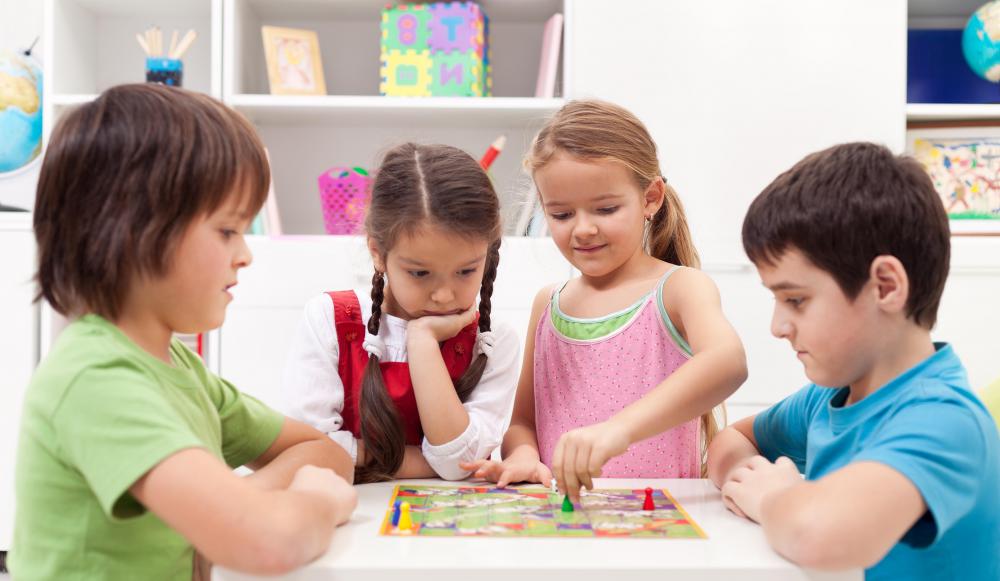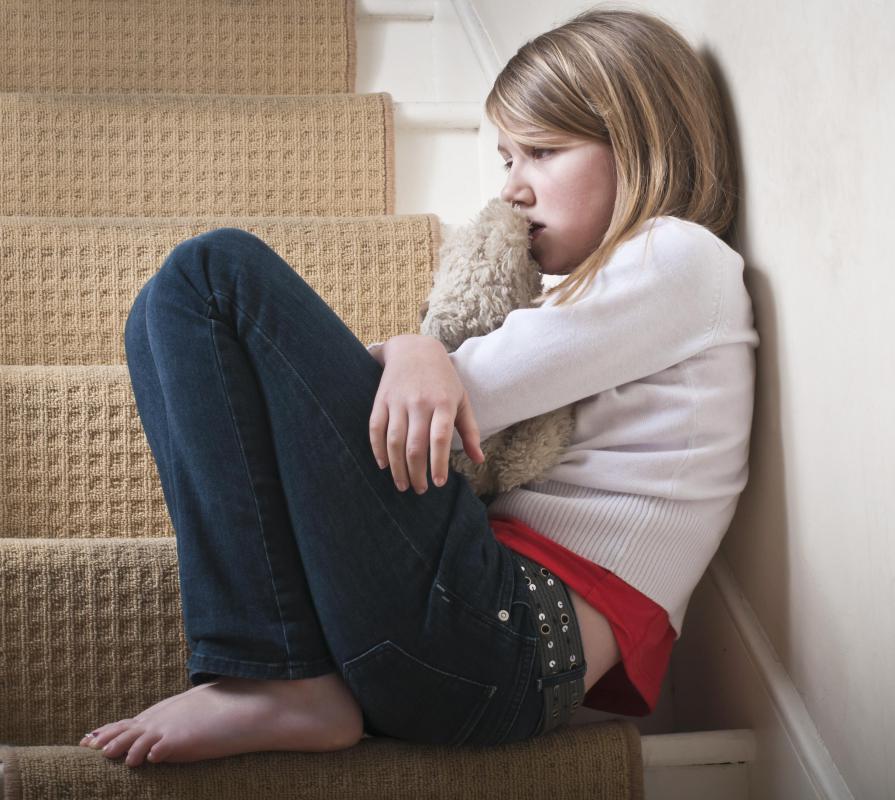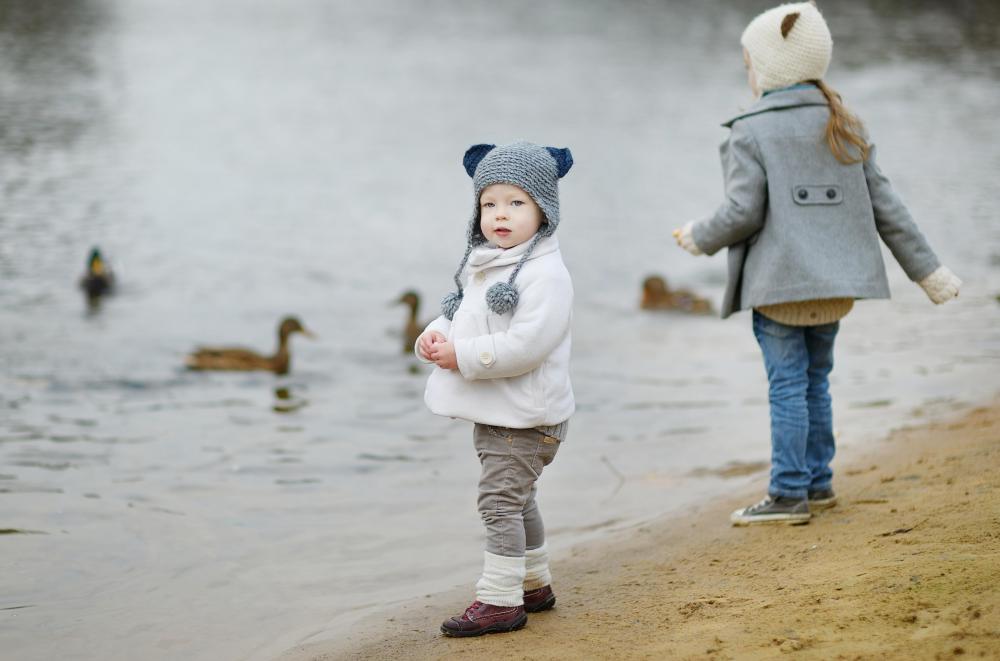At WiseGEEK, we're committed to delivering accurate, trustworthy information. Our expert-authored content is rigorously fact-checked and sourced from credible authorities. Discover how we uphold the highest standards in providing you with reliable knowledge.
What Are the Common Causes of Social Anxiety in Children?
Although the causes of social anxiety in children are not definitively established by the scientific community, it is suspected that genetics, environment and life experiences play a role. Studies of identical twins have found that anxiety disorders often appear in both children, suggesting that there is a genetic cause for the disorder. It is suspected that children who are raised in secluded or socially isolated surroundings might grow to avoid or fear social situations. Traumatic experiences at school or other social situations also might cause social anxiety in children. Treatments for the disorder typically focus on reducing the anxiety through examining thoughts and fears.
Genetic factors are thought to play a role in social anxiety in children. Studies have examined irritable babies who later became shy as toddlers and exhibited socially introverted tendencies during grade school and beyond. Observation of social anxiety in twins also suggests that the cause might be physiological. If one twin suffers from anxiety, it is highly likely that the second twin also will experience the same symptoms. The challenge rests, however, in isolating genetics from social surroundings or environmental factors.

Upbringing is suspected to play a role in the development of social anxiety in children. Parents who limit opportunities for social interaction might instill a fear of people in their children. A parent crossing the street to avoid other pedestrians, turning down social invitations and showing nervousness in social situations might leave an impression on young children. Without regular exposure to social activities, some children experience shyness and anxiety around others.

Child abuse and emotional neglect also are connected to social anxiety in children. Children who have been institutionalized, been abandoned by their parents or experienced parental death or divorce are more likely to experience anxiety disorders. Strong connections have been found particularly between emotional neglect and social anxiety. Parental neglect, traumatic experiences such as physical or sexual abuse and little empathy or support from others have been suspected as causal factors.

Treatment for social anxiety in children typically focuses on reducing the feelings of anxiety. A child might have exaggerated beliefs about others disliking him or her, or he or she might avoid speaking in class for fear of making a mistake. In therapy, the counselor typically guides the child through analyzing the situation and examining thoughts. Introducing other possible interpretations of social events and incidents is a common way of guiding children who have this disorder and reducing their social anxiety. If the anxiety is extreme and interferes with normal functioning, psychiatrists sometimes prescribe anti-anxiety medications.
AS FEATURED ON:
AS FEATURED ON:

















Discussion Comments
I have always been more on the quiet side, but I wouldn't consider myself anxious. I had a very normal, happy childhood. It's the kids that have been traumatized by some kind of physical, emotional, or sexual abuse that can truly show signs of social anxiety.
Working in the school system for several years, sometimes it is easy to spot those kids who have experienced some kind of trauma in their life. There is something about their behavior and reactions that is different from someone who is just naturally quiet or reserved.
My parents divorced when I was in elementary school and I thought my whole world had fallen apart. I went through a long period of time where I withdrew socially and was very anxious and troubled.
Looking back now, I really should have gone to some counseling, but this was never offered to me. I learned to deal with my problems by withdrawing and didn't feel comfortable in new or changing situations.
I used to work at a day care and found that the children who were the most anxious had parents that were uptight and over protective. Sometimes I wonder how much parents realize how their thoughts and actions influence their children. Many times they don't even have to say anything, it is just the way they perceive situations. There is a good chance these kids will grow up to be anxious adults just like their parents are.
I find it interesting that when studying twins both of them would often be anxious. I still think it would be very hard to determine how much of this is genetics and how much is their environment.
My sister has twin boys and one of them is very shy and quiet and doesn't do well in social situations, while the other one is very outgoing. They have completely opposite personalities so this doesn't really hold true for them.
The outgoing one is always trying to get the quiet one more involved, but it doesn't work very often. Sometimes I wonder if it is more a difference in personalities than a problem with anxiety.
Post your comments